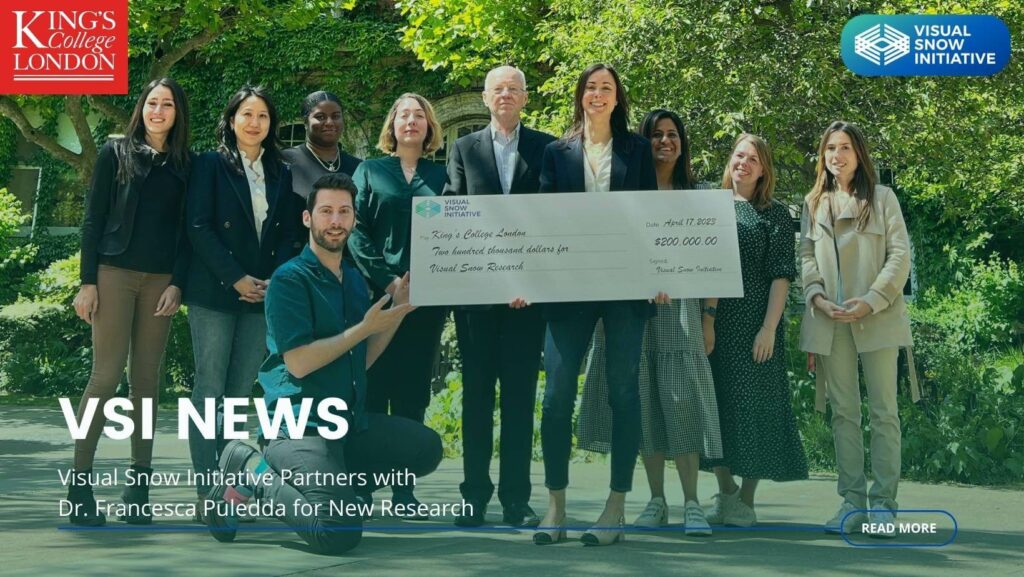The Visual Snow Initiative Has Exciting News to Share!
Pictured from left to right: Viviana Santoro, Diana Wei, Amara Anderson, Kostis Christoforou, Stefania Maniataki, Peter Goadsby, Francesca Puledda, Nazia Karsan, Fiona Greenwood, & Maria Villar Martinez

We are pleased to announce our funding for Dr. Francesca Puledda, of King’s College London, who will be leading an innovative research project to advance our understanding of Visual Snow Syndrome (VSS).
Dr. Puledda’s project aims to identify biomarkers that can aid in the diagnosis and treatment of VSS. Biomarkers are measurable indicators found in our body that can indicate changes associated with a specific condition.
In the case of VSS, identifying biomarkers can help us understand the changes in brain metabolism and connectivity that cause the underlying symptoms.
“We are very excited to be working with Dr. Puledda and her team at King’s College as we, through shared dedication, aim to learn more about Visual Snow Syndrome, develop further treatments, and raise awareness together.” — Sierra Domb, Founder
Why Is This Significant?
Biomarkers can be used as targets for future personalized and effective treatments for Visual Snow Syndrome.
Dr. Puledda and her team will use state-of-the-art neuroimaging, such as Magnetic Resonance Spectroscopy and a 7-Tesla MRI, which is the most powerful brain imaging machine in existence, to identify these biomarkers.
This is the first time ever a laminar fMRI in combination with spectroscopy will be used for VSS research.
With the 7-Tesla MRI and spectroscopy, they will finally be able to measure two fundamental neurotransmitters, GABA and glutamate, which balance the mechanisms of excitation and inhibition in the visual cortex.
Another technique that will be used is Transcranial Magnetic Stimulation and Electroencephalography (TMS/EEG). This technique involves applying a magnetic field that activates neurons in the brain, recording the electrical activity. Researchers can study the brain’s excitability, connectivity, and sensory processing by analyzing the electrical signals produced.
This research not only benefits VSS patients, but it could also help people suffering from other conditions with similar symptoms, such as migraines, tinnitus, and HPPD.
Clinicians, researchers, academics, and VSS patients will all benefit from this exciting work.
Stay in touch with the Visual Snow Initiative to see our new video series about Dr. Puledda’s upcoming research. Your support can help make a positive difference in the lives of VSS patients and those with similar conditions worldwide.


